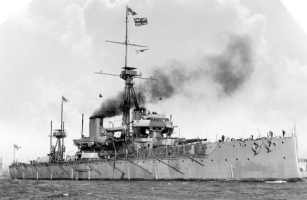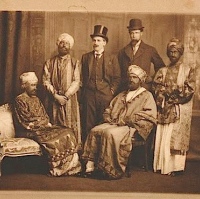(
from M.Christian's Technorotica)
I always liked this story - so I thought I'd share it with you. "Orphans"
first appeared in Talebones Magazine and now, of course, is in my
science fiction/fantasy/horror collection, Love Without Gun Control ...
out in 'e' and paperback from the great Renaissance E Books.
Orphans
Outside
of Atlanta, after standing under the flickering fluorescent lights of a
sprawling truck stop for almost an hour, he was picked up by a heavy faced man
driving a ratting sixteen wheeler. Red hair an angry mop on his head,
brushy beard all wild and unkempt, the driver said “Glad for the company”
before they’d even pulled out onto the dark highway.
#
In a little town somewhere just beyond the Louisiana
border, he was picked up by a middle-aged woman in a green station wagon, who
seemed to delight in creating herself as the perfect housewife:
housecoat, hair in curlers, kid’s seat in the back. She spent the first
few miles prattling nervously, obviously just wanting companionship but frightened
with herself for choosing the young hitchhiker to try and sate it. He
listened, hypnotized by the landscape blurring by. Finally she asked,
“Been on the road long?”
“Not long,” he said, wishing again that it had been
someone else who’d picked him up, “just getting out. Meeting people.”
“That’s good,” she said, innocently. “Nothin’
worse than being alone.”
To that he just nodded, still staring out the window.
#
He’d never heard of a nut log, and would be damned if
he was going to try some. But the salesman, Lou Phillips, was so
insistent that -- before he was even aware of it -- he had some on the end of
his fork.
“Now me, son,” Lou said, smiling broad and bright, “I
ain’t a flincher. You take that shit there on the end of your fork.
What’s the worse that could happen? It taste like crap -- but that ain’t
gonna kill you, is it? But maybe it’s gonna be the best damned shit you
ever tasted. Ain’t gonna know till it’s in your mouth, right?”
He didn’t answer, and instead stared at the tip of his
fork, at the brown sticky mass. Before he was aware of it he was
categorizing diseases, vectors and transmission rates. Closing his eyes,
he breathed in, out, in and again, then put it into his mouth. The
sweetness was almost alarming, and without conscious control he opened his eyes
-- and stared into Lou’s sparking brown eyes. “See, that ain’t so
bad! Fuck it, son -- life’s too short to be scared.”
A cup of coffee later, Lou confessed that he was a
widower. His wife of twenty-six years having passed away that
spring. “Some kind of virus got her. By the time she went to the
damn doc it was she was thin as a rail. Didn’t last more than a month.”
Sipping hot, bitter -- with a touch of slightly turned
cream, he hung his head down, mumbling, “Sorry” like it was his fault.
“I mean we all got to go, right? When it’s our
turn. But what pisses me off is the shit those damned doctors put ya
through. Pretend that they know it all when they don’t know shit.
Tell ya what, kid, if I ever get something I’m just gonna drive out to the
desert somewhere and just lay out there in the sun. Damn sight better
chance then letting them touch ya.”
It seemed such a positive act that he smiled, despite
himself -- masking it by sipping the foul coffee again and saying “Sometimes it
isn’t that they don’t know -- it’s that it’s just not worth knowing.”
#
Another big truck -- this time cleaner, almost
polished. Like a fighter plane, sporting a elegant pin-up on the driver’s
side door. Haulin’ Ass, scrolled under a cheesecake girl with golden
blond hair. The driver was gaunt, a narrow sketch of a man.
Peppered hair and the ghostly scar of a hair lip.
They didn’t speak for many miles, then the driver
said, unexpectedly, “What cha’ runnin’ from, man?”
His first reaction was so say, “nothing” but the word
didn’t come. Was he running? When he thought about it, watching the
double-yellow vanish under the windshield, the direction wasn’t right.
“Not from, towards.”
“What cha’ goin’ to, then?”
He didn’t know. He did know, though, that he
couldn’t stay in Atlanta. It was such a lonely place ... no, not
right. It was where he discovered loneliness. A dusty little room and
files -- at first just one or two then more. Some of them had faces,
pictures charting their progress -- images to match the declining graphs.
Aside from the wasting, he’d seen something else in those faces, the sunken
eyes, the fallen features -- loneliness. In their worlds they’d been too
few, not enough to matter ... to save.
He’d managed a rough smile, trying to put a comedic
face over tragedy. “Just makin’ friends,” he said.
#
Texas was hot, ghostly heat hovering above the
roadway. Sky too blue, too pure to be stared at for long. Sitting
in a McDonald’s, slowly sipping a shake to avoid going out into the hot, dry,
he struck up a brief conversation with a young couple. Too pressed, too
clean. A few miles beyond, the air conditioner in their older car cranked
up to full, they started to talk about Jesus.
He responded noncommittally, but soon their tone
started to irritate him. Looking out at the hot land, he could too easily
see the ghostly hopelessness, the abandonment he’d first seen in Atlanta
overlaid on every face they passed. Maybe the harried father in the RV --
stricken with something that struck one on ten thousand. Maybe that old
woman, all blue hair and cautious hand on the wheel -- catching something that
would waste her, slowly, horribly but only affected one in a hundred thousand.
He listened, for a moment, about what they were saying
-- instantly realizing that they were following a well-hewn grove.
Something like Parkinson’s, a horrible inlaw to the more popular disease: a
gradual wasting of the mind -- something affecting one in a million. He
could too easily see them, parroting their beliefs till they had no more will,
no more strength left to even move their lips.
At the next town he asked to be left off, dismissing
their offer of finding him a shelter, a meal, but he did take the money they
offered, more than anything to get them to leave.
#
Too many miles. Still in Texas but the weather
had changed -- high, turbulent clouds casting deep shadows onto the flat
land. Too many miles. Maybe that was it. A pressure.
They all saw him the way they wanted to, a young man traveling. A bum, a
threat, a homeless person, an object of pity, something to hate and
blame. The pick-up truck full of teenagers, throwing a half-empty can of
beer as they passed, the too-helpful families that desperately wanted his
absolution.
So he told some of it to the bald man, the man in the
jeans and stained tee-shirt. He knew he’d been picked up for rough trade,
but didn’t care. He avoided his inquiring eyes and, at first, answered
with only a few words, but as they drove and the driver’s interest became more
and more obvious he found himself talking more, stringing together fact and
fiction.
To “-- where are you headed?” he said, “Los Angeles,
my mom’s in the hospital. Something wrong with her liver.”
To “-- that sounds pretty serious. What does her
doctor say?” he said, “They know what it is, some kind of hepatitis
variant. Rare, though, like one in a hundred thousand get it.”
To “-- at least they know what it is. They got
all kinds of drugs and shit nowadays” he said, pausing “They know what it is,
but not enough people get it. So they don’t make a cure, not cost
effective. They call them ‘orphan diseases’ -- too rare to bother
curing. She’s going to die.”
They rode in uncomfortable silence till the next
town. This time he was asked to leave -- and he did, stepping out into
the darkness of a cloud’s shadow. It had been the shortest trip he’d been
on, but he felt lighter, less burdened. That it had only been part of the
truth didn’t matter; he’d spoken enough of it to get someone to understand, if
maybe just a little.
#
A long time and New Mexico. He felt the fever
start as he walked down dusty streets, passing stores selling fake Indian art,
plastic tomahawks. In a narrow alley, an old man with heavy features
slept out the hot afternoon, a bronze-colored bottle by his hand.
He went into a dark bar and sat in the corner, feeling
his core temperature rise, his skin shimmy with cold shakes. Taking deep
breaths, he sipped a warm beer.
He remembered its pathology, its transmission rates,
preferred vectors. He thought he’d have more time, and silently felt a
heavy sadness at not being able to see the Pacific. It hadn’t been a real
goal, but had begun to be a kind of benchmark, a saccharin epitaph.
He’d met some good people as he’d traveled from
Atlanta, and felt sorry for them. But he also remembered those faces on
all those files. It wasn’t virulent, but it did spread. Airborne
was tough, but it could manage.
Too few to care about. Not enough to bother
curing. It had almost been gone, at least to the Center for Disease
Control. Exiled to its refrigerator, the vault. A rarity that
claimed maybe a hundred, maybe two each year, almost just a memory. So
rare that they’d passed judgment on it: extinction. It had been his
job to destroy the samples, to consign the virus to a few sad cases scattered
around the world.
The faces on those folders. Too few to care
about. As the shivers began in earnest, he tried to think about them, to
hold each and every one of them in his mind. Coldly told their wasn’t
enough of them to bother, to care about, to cure.
Sipping his beer, feeling his strength drain, he hoped
that now -- after all those miles he’d managed, those rides, those hands he’d
shaken -- they wouldn’t be so alone.




 be
on their lofty pedestals you'll quickly learn that more than a few of
them might be wonderfully, delightfully, fun ... if not totally nuts.
be
on their lofty pedestals you'll quickly learn that more than a few of
them might be wonderfully, delightfully, fun ... if not totally nuts.



